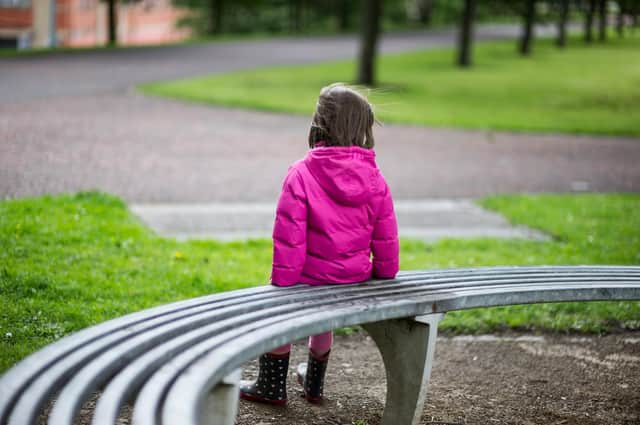Given the Covid death toll, schools need to help bereaved children now more than ever – Lesley Franklin


Founded to provide an education to the “fatherless bairns” of Edinburgh, George Heriot’s School has over 400 years’ experience in educating and supporting bereaved children through its foundation.
Since children ordinarily spend many of their waking hours in school, staff should be equipped to support the well-being of those who are grieving the loss of a parent or family member.
Advertisement
Hide AdAdvertisement
Hide AdRight now, child and adolescent mental health services (CAMHs) are facing huge demand, with some referrals even being turned away. A report by Winston’s Wish shows that 41 per cent of young offenders experienced bereavement as a child, indicating the severity of the impact this has on both their well-being and education.
This clear cause for concern shows that schools should have a robust support system in place to assist bereaved children. A ‘whole-school’ approach needs to be adopted, where a supportive environment is fostered and teachers are equipped to deal with grief, in conjunction with specialised programmes.
Children must know there is no ‘normal’ reaction to death, divorce, the pandemic or other life events, and that all emotional responses are valid. Schools can begin to normalise grief from the early years of education by speaking in plain language and avoiding metaphors like “passed away”. Alternative lessons, such as yoga and calming techniques, can help teach children how to identify and express emotions and relax.
Following the first lockdown, we began a programme of well-being lessons for nursery to primary 7, including a visit from Hugo, a pets-as-therapy dog who helped pupils to manage their anxiety – he has been described by pupils as an excellent listener!


Even remotely, schools can find innovative ways to support pupils over the past year – a digital ‘worry box’ for pupils can ensure that their privacy is respected and they have a safe space in which to express their concerns.
Educators must be in a mentally and emotionally strong place to be able to support children fully. The NHS’s Five Steps to Mental Well-being resource is an excellent starting point for initiating that conversation with school staff.
Schools should consider introducing a mental health toolkit of strategies and skills to help staff process their experiences and develop ways to cope with their feelings. With an established framework in place, it makes it easier for everyone to get on board.
Of course, supporting parents and guardians is equally as important, as they may also be experiencing loss. Online workshops can help renew a lost sense of community and ensure those at home are not left out of the loop.
Advertisement
Hide AdAdvertisement
Hide AdHaving this whole-school approach, where the well-being of pupils, their parents or guardians and staff is fully supported, will help us to overcome bereavement together and enable children to develop more holistically than any generation before. Children are remarkably resilient and I believe we could all learn from the honest and open way that they share their experiences and feelings.
Lesley Franklin is principal of George Heriot’s School in Edinburgh
A message from the Editor:
Thank you for reading this article. We're more reliant on your support than ever as the shift in consumer habits brought about by coronavirus impacts our advertisers.
If you haven't already, please consider supporting our trusted, fact-checked journalism by taking out a digital subscription.
Comments
Want to join the conversation? Please or to comment on this article.